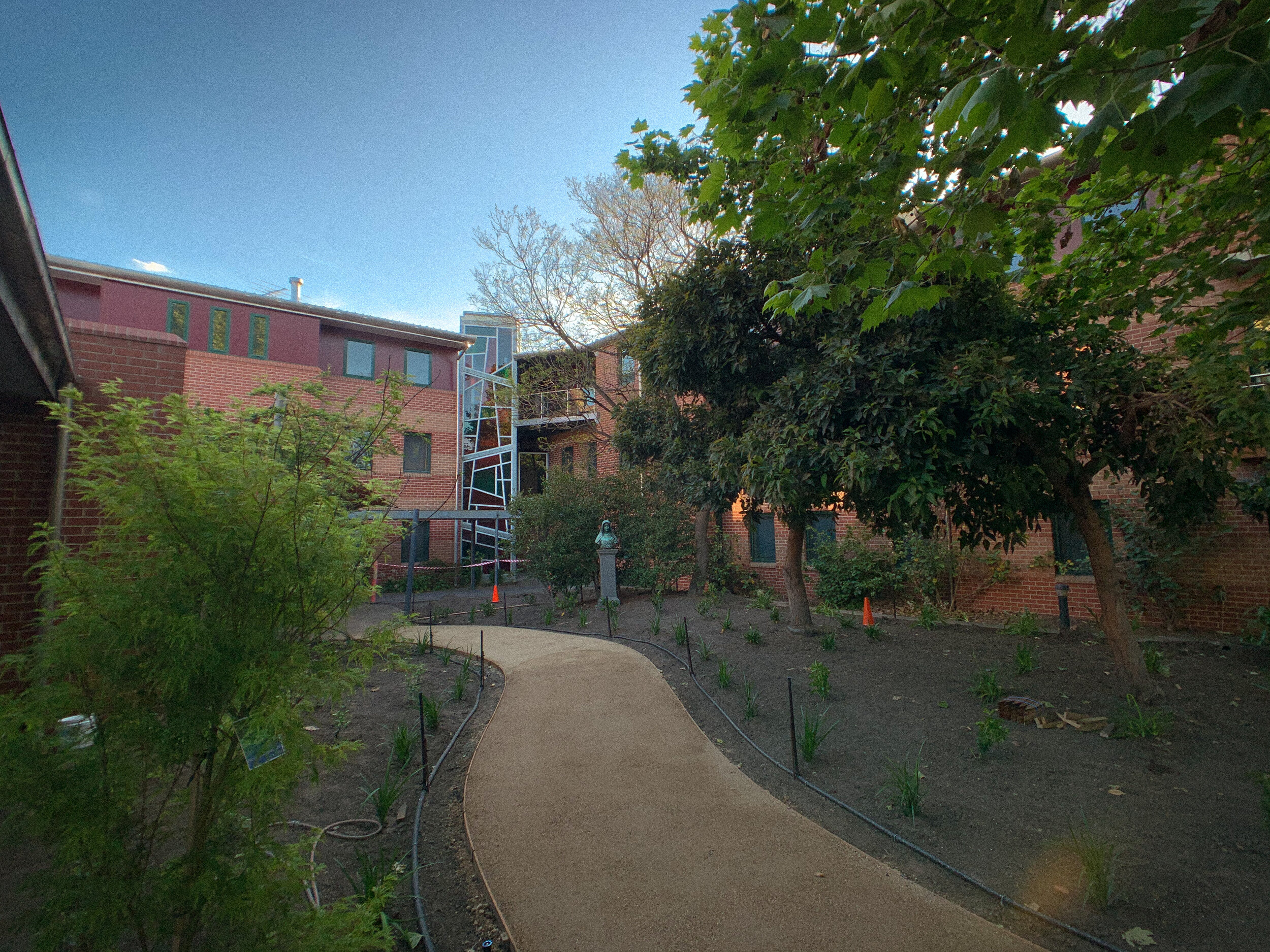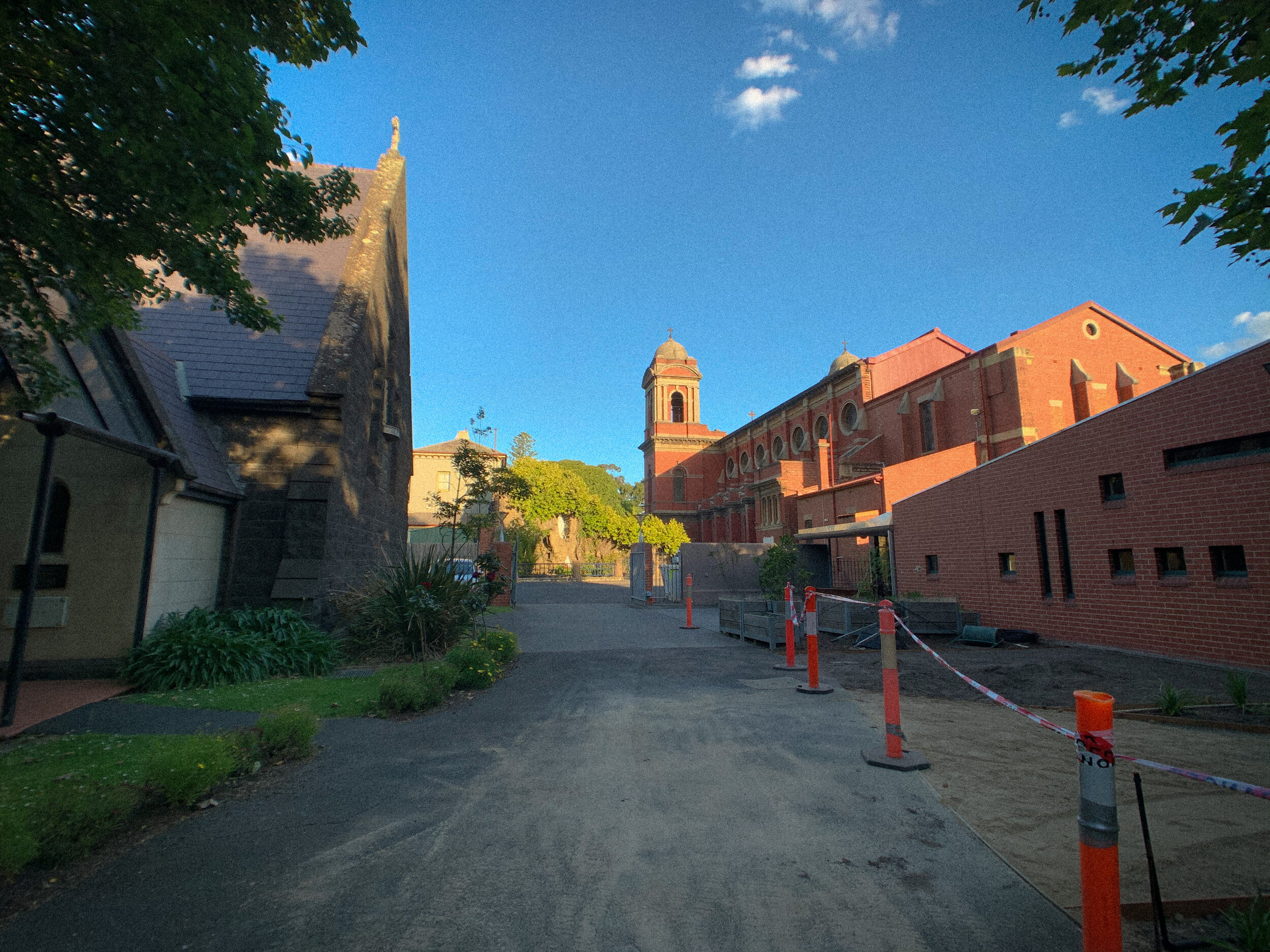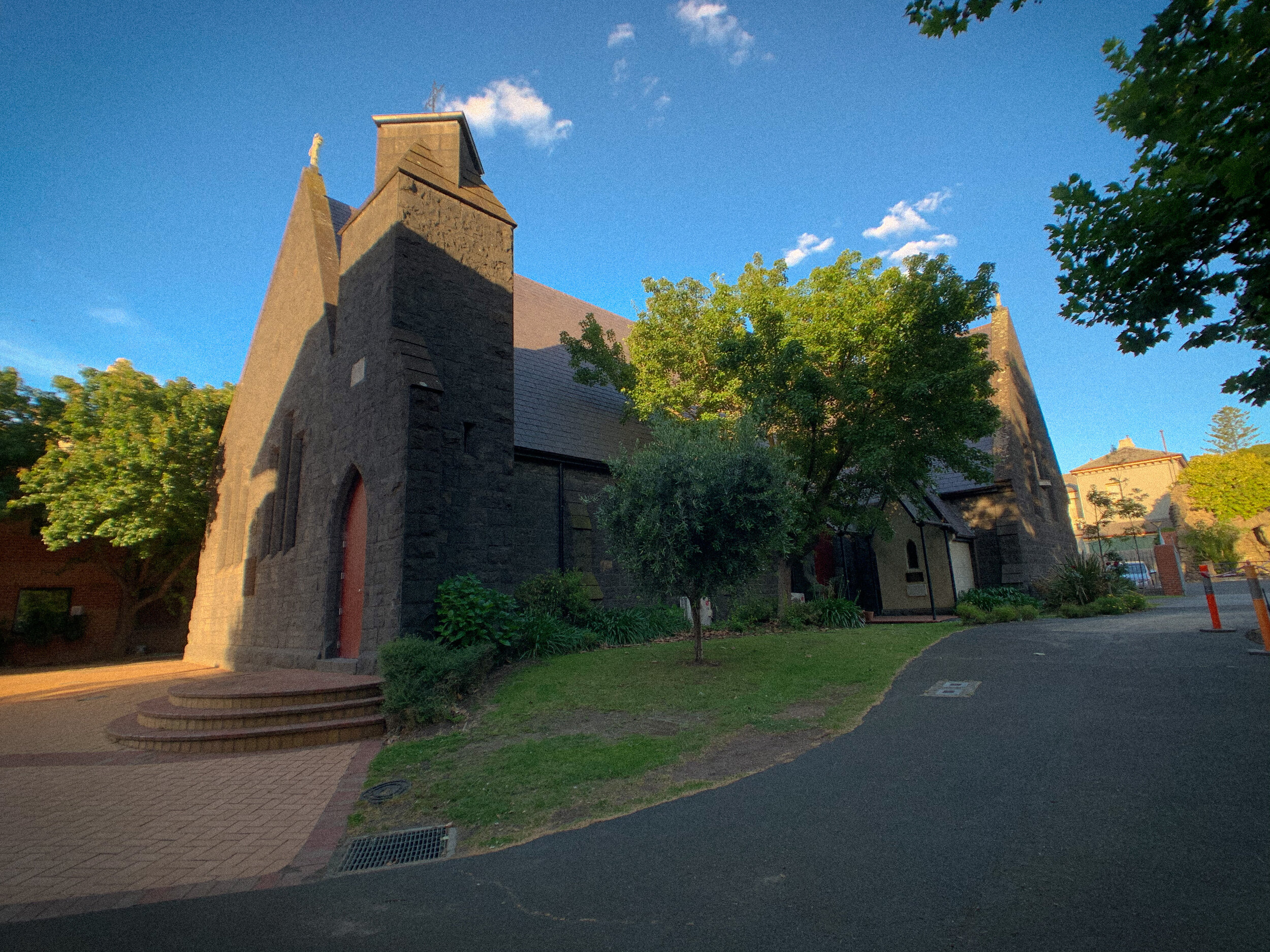2020
A year of Loss and Gain with the Breviary
Fr Denis Stanley
But who shall dare
To measure loss and gain in this way?
Defeat may be victory in disguise;
The lowest ebb is the turn of the tide.Henry Wadsworth Longfellow
Usually, of course, when we are all together under one roof, there is a chance for a formal word of farewell and well-wishing for the holidays that lie before us. So I take to social media for a brief word to a dispersed community. In one way it doesn’t seem right because it’s different from what always happens but then again it is simply something we embrace because it’s what we have to do – and so we do it.
Most people think that Cardinal John Henry Newman only wrote sermons and theological books. Not so. In 1848 Cardinal Henry wrote a novel – he wrote a few novels. It’s the story of a young man searching for faith. Through many twists and turns, he is eventually received into the Catholic Church, a decision that causes great pain and disappointment to his family and friends but which brings him fulfillment and peace. The novel is called Loss and Gain.
I would like to make that the motto of this year – Loss and Gain. What do you think?
There are some things that we have lost. As students discerning a path towards priesthood there has been the loss of engaging, in the usual full and wholehearted way, in pastoral work. Schools, hospitals, outreach centers, jails have all been closed to us. Pastoral work in parishes has been, if not ended, very much changed. Although indeed some pastoral work in parishes did come to an end. Closed doors have been the symbol of this.
The loss or diminishment of pastoral work, especially in the Melbourne metropolitan area, has been a real loss. It is in pastoral work – engaging with others, listening, and serving – that our vocation is more keenly observed. Is this what I want to do for the rest of my life? Do I find this ultimately life-giving? Do I have the gifts for this? Do I have a genuine concern for others? Do I know and feel that the Lord is with me in this work which is his work? I hope everyone has felt this loss and for those able to engage in some pastoral work, that it means more to you.
Perhaps there are activities and encounters that you feel have been lost. Many seminarians have told me that they have missed the community life of the seminary. Many have missed the immediacy of face to face teaching at CTC – Zoom is good but not that good at times.
One of the losses we face at the end of this year is the departure of Fr Cameron and Fr Thinh – both of whom move into parish life. Their moving to new ministries, of course, has nothing to do with Covid (although being in lockdown at the Seminary for nearly the whole year might be a strong motive to want to be out of here)
It has everything to do with God’s call to serve his people. All of us, with myself and the staff, pray God’s richest blessings on them for all their tomorrows, and as well we give thanks for their rich contribution to the Seminary.
We will also be officially farewelling those who have been and who are to be ordained priests. With all the people of God, they have shared many months of closed churches and no assemblies for public worship. The deacons to be – permanent and transitional – also await an opportunity to celebrate their ordinations with good numbers as is right and just for an ordination liturgy. We hold them in our prayer for this extra-long Advent of waiting.
They join the many who have not been Confirmed or received First Reconciliation or Holy Communion. If this has been a year of loss and gain – the community’s gathering for the Sacraments has been long, severe, and a painful loss. Again liturgy on Zoom has filled a gap but everyone knows and feels that we are a sacramental people – people yearn for touch and connection – that is how God made us and how he graciously stoops to be with us in Christ Jesus.
But just as surely as we have lost some valuable aspects of seminary formation, there must be things we can discern that we have gained. I won’t give any examples. I will leave that up to you. What have been the gains for you? Can you name them?
I would like to conclude by pointing to a resource that should have been a great help to you over these last eight months and will continue to be as we move into the holidays.
Of course, this year has been unusual – unprecedented as they keep saying. But they have not been unique times. Through times of loss and gain, there is a resource we have with us every day that helps steer us through these days. Have you guessed what I am referring to?
I mean your Breviary – the Liturgy of Hours. In dramatic, exceptional times I suggest we look to the everyday. We are called to pray the Office every day – morning, evening, and night. Why? Because of the Psalms.
The largest book in the Bible is the psalms. You would be hard-pressed to find a book throughout the scriptures that speak more clearly to what it means to be a human being than the Psalms. This worship book is packed with an incredible breadth of emotion that oftentimes comes across as shocking to those who think that prayer and worship are all roses.
The writers of the Psalms faced real circumstances in the real world that try patience, stamina, and faith; they speak out of their own lived experiences in a Godward direction. The people of God have benefitted for thousands of years because of the raw, vulnerable places to which the writers give poetic expression, we can as well.
On the College website, I have written more about the Psalms and what they mean to me and hopefully to you. How the Psalms depict three experiences we face as human beings in relation to times of orientation, disorientation, and reorientation. Covid times.
A deeper look into the Psalms is just what we need and we do that every day in the Liturgy of Hours. Don’t leave home – or the Seminary – without it.
So wherever the holidays take you; among family, friends, parishioners – with prayerful bests wishes from the Staff…
May God keep you in all your days.
May Christ shield you in all your ways.
May the Spirit bring you healing and peace.
May the Holy Trinity drive all darkness from you,
and pour upon you blessing and light. Amen.
Orientation, Disorientation, Reorientation.
The Old Testament scholar who I have learned a lot from, Walter Bruggemann, helps us see that the Psalms depict three experiences we face as human beings in relation to God and he describes them as Psalms of orientation, disorientation, and reorientation.
In the Psalms, Brueggemann gives us a framework of the life of faith that helps us describe and deal with what we are feeling in relationship to traumatic and disorienting events.
Orientation, this is when everything in your relationship with God is going well, and it all makes sense. For many of us, this is a comfortable time when we feel like we understand what is happening in life, and there is an inner sense of peace, calm, and purpose. Psalms of orientation speak of things like creation, wisdom, and the favour of God. An example would be Psalm 8 -
I look up at your heavens, shaped by your fingers, at the moon and the stars you set firm – what are human beings that you spare a thought for them, or the child of
Adam that you care for him?
Here we see the writer of the Psalm totally oriented toward God. He's thinking clearly and full of worship and wonders at God in light of his creation. He not only knows who the maker is, he knows the maker himself... And his maker knows him, too. He is at peace in this beautiful world knowing that he’s not just part of creation in general, but that he uniquely belongs to God.
Unfortunately, remaining oriented toward God is not our only experience as Christians. We do go through sometimes extended seasons of feeling totally disoriented in our relationship with God, ourselves, and the world around us. During times of disorientation, we get a better grip on what it means to walk by faith and not by sight. To believe in spite of not feeling or experiencing the presence of God gives the word “faith” a bit more grit, doesn't it?
An event in life like Covid-19 begins to move us from the orientation to a stage of disorientation. In this time, we have a sense that a shift has taken place in things like the economy, education, family interactions, our vision of the world, understanding of God, the liturgy, God’s kingdom, God in the world, and our place in it. This shift moves us into disorientation.
Honest words of anger, hurt, depression, despair, and deep questioning of God permeate a
Psalm like Psalm 13 -
How long, O Lord, will you forget me? Forever?
How long will you turn your face away from me?
Praying the Psalms of disorientation, we have an invitation to sit in the disorientation while God rewrites human history. We can share our doubts and fears directly with God. We can express our anger.
We can demand justice and even retribution in the face of injustices. God knows what is in and on our hearts, and our invitation is to allow God into our uncertainty and vulnerabilities.
But the moment will come when we need to move from a context of disorientation to a new orientation. Thanks be to God that for the believer; disorientation is never the final word. Rather, over and over again we see Psalms of reorientation. These are where the Psalmist has experienced God as our rescuer. Listen to the words of Psalm 73 -
My heart grew embittered, my affections dried up, I was stupid and uncomprehending, a clumsy animal in your presence. Even so, I stayed in your presence, you grasped me by the right hand; you will guide me with advice, and will draw me in the wake of your glory. Who else is there for me in heaven? And, with you, I lack nothing on earth.
The movement begins to happen when we are surprised by a new gift from God, made present precisely when we thought that something was lost. We discover a new way of being and finding Emmanuel – God with us. The anger, doubt, frustration, and confusion of disorientation begin to find new truths about God and a new reality that helps us praise God even after we have spent the time in disorientation. The process is a reorientation to God.
Bruggemann notes, we must go through disorientation to get to praise. Disorientation unravels our attachment to the status quo, our illusion of control, and our need for comfort.
Disorientation helps us to let go of the past and desire only God. In this process, we open ourselves and our world to a new understanding and presence of God. We are changed, and this process of spiritual formation is how we are made more like Christ in our world.
Perhaps today you feel oriented around who God is and what he has done. Maybe today is another day for you to walk in faith feeling fairly disoriented. Today might be the day that God reorients your perspective and heart around his love for you. Whatever the case may be perhaps a look into the Psalms may be just what you need and we do that every day in the Liturgy of Hours. Don’t leave home – or the Seminary – without it.



